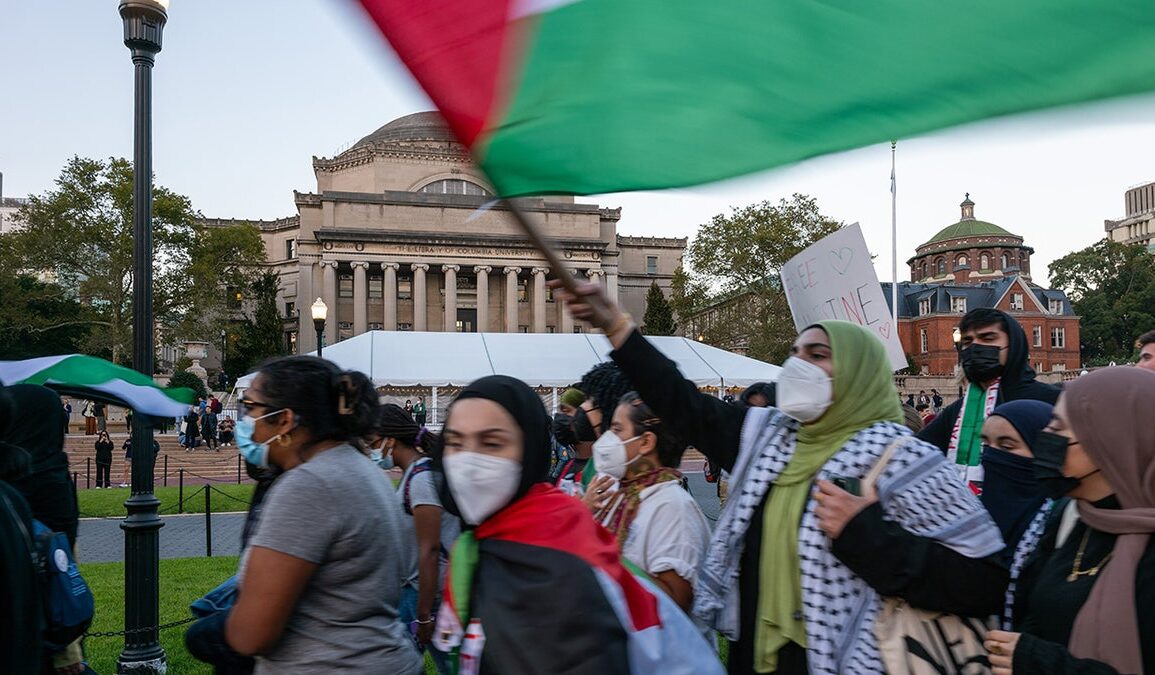Columbia University’s president has commended the resilience of students facing accusations of antisemitism during the ongoing Israel-Hamas war. In response to incidents of doxing, harassment, and online security threats targeting members of the community, Columbia University President Minouche Shafik and Barnard College President Laura Rosenbury have announced the establishment of a “Doxing Resource Group.” This group, composed of key offices across both campuses, aims to serve as a centralized point of contact for issues related to doxing, harassment, and online security.
The presidents expressed their condemnation of the deliberate harassment and targeting of students through doxing, a form of dangerous intimidation. They specifically mentioned incidents where trucks circled the Columbia campus displaying and publicizing the names and photos of Arab, Muslim, and Palestinian students. Shafik and Rosenbury commended the persistence and perseverance of the students and their families in the face of this harassment. They assured the impacted individuals, as well as the staff and faculty supporting them, that available resources would be assembled to support them.
The announcement came after nonprofit news watchdog Accuracy in Media sent trucks to Columbia’s campuses, featuring large video screens displaying the words “Columbia’s Leading Antisemites” over a slideshow of Ivy League students’ headshots and names. Accuracy in Media President Adam Guillette claimed that these students allegedly justified Hamas’ deadly assault on Israeli civilians, similar to a proclamation signed at Harvard that blamed victims for their own suffering.
In addition to the Doxing Resource Group, Columbia and Barnard have retained experts in the field of digital threat investigation and privacy scrubbing to support the impacted community members. The resource group will serve as a single point of contact for all issues related to doxing, harassment, and online security. It will proactively communicate with students, provide referrals, coordinate services, and address concerns or suggestions for additional support. The group will be operational until November 30, with a reassessment planned to ensure the effectiveness of their efforts.
Columbia University’s concern for the safety and security of its students and community members has prompted the establishment of both a Task Force on Antisemitism and a Doxing Resource Group. These initiatives aim to address the acute problem of doxing occurring within the university community.
The university’s efforts to combat antisemitism were met with criticism from some students. Daniel Di Martino, an economics Ph.D. student at Columbia, accused the university of supporting students who defaced and tore down posters of Jewish kidnapping victims and signed statements against Israel. He argued that the university’s actions were driven by a double standard and questioned whether similar support would be provided if any other nation faced similar attacks.
Overall, Columbia University’s proactive response to combat antisemitism through the establishment of the Doxing Resource Group reflects its commitment to ensuring the safety and security of its students during the ongoing Israel-Hamas war. The university’s efforts to address doxing, harassment, and online security threats demonstrate its dedication to maintaining a supportive and inclusive campus environment.




